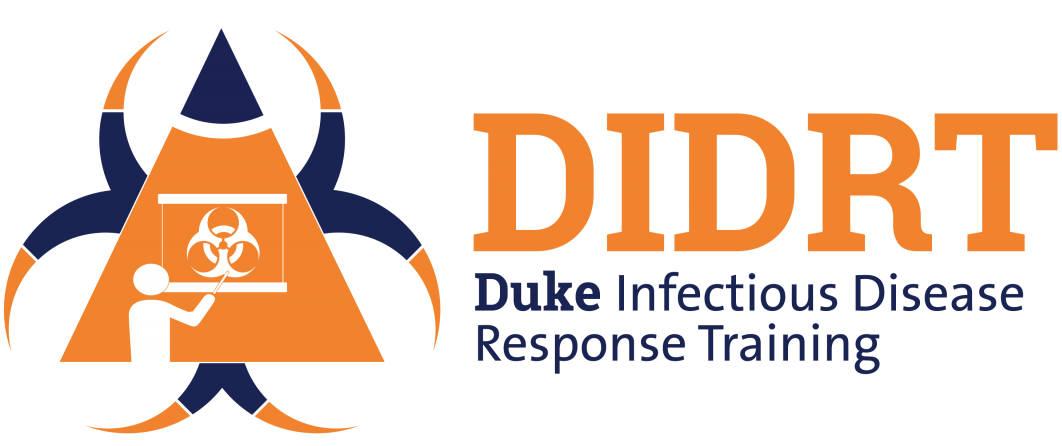Four epidemics (SARS, pandemic influenza, Ebola and the COVID-19 pandemic) have tested our national preparedness for infectious disease emergencies, revealing both strengths and weaknesses. Identified weaknesses have highlighted the need for a national network of training consortium to ensure up-to-date, high-quality, effective and efficient delivery of biosafety and infectious disease worker training.

The Duke Infectious Disease Response Training (DIDRT) was originally established in 2016 through funding by the NIH/NIEHS Worker Training Program (WTP) to address these weaknesses and contribute to a nationwide network for biosafety and infectious disease response training. The DIDRT program provides training in occupational settings that carry the potential for increased exposure to contaminated materials or infected individuals with a focus on hands-on learning and a train-the-trainer model.
DIDRT is based out of the Regional Biocontainment Laboratory (RBL) at Duke, a division of the Duke Human Vaccine Institute. The RBL is one of 14 regional and national containment facilities built with funding from the NIH/NIAID to support basic research necessary to develop drugs, diagnostics, and vaccines for emerging/reemerging infections and biodefense. RBLs were strategically constructed at major academic medical centers and provide a nexus of training and outreach to healthcare and non-healthcare workers in their respective geographical catchment areas.
DIDRT Goals Include:
- Prepare the nation's front line workers for the next epidemic by maintaining warm readiness
- Develop up-to-date, high quality, effective biosafety and infectious disease training for an array of worker populations
DIDRT Program Manager: Scott Alderman, MS, CBSP